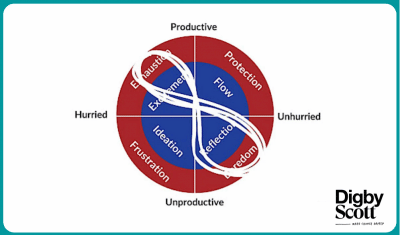
Christmas Won’t Fix It (2022 Version)
1st Dec 2022Time isn’t the main thing. It’s the only thing.
Miles Davis
Last week I posted a poll on LinkedIn asking the question ‘Leading into the end of the year, how full is your tank?’ As of the time of writing, here are the preliminary results:

That’s two-thirds of people either getting low or running on fumes.
Are we happy with that result? Personally, it makes me uncomfortable, and sad.
Sad because the same thing happens about this time every year.
Below is a post that I wrote this time last year. I’ve kept the text the same. Yet what’s changed over the past 12 months is my perspective. I’ve increasingly come to believe that running on fumes is not simply because we individually don’t know how to do any differently. There are massive systemic forces at play (for example, the economic growth story, and organisational cultures driven by relentless achievement) that we’re subject to that just make it hard to slow down.
Yet there are still choices we can make.
If you’re reading this as someone who’s getting low, or running on fumes, I hope you find some inspiration in these words.
If you’re reading this as someone who wants to give the systemic forces a good nudge, my question to you is this: what will your leadership look like in 2023?
___________________________________________________________
It’s about this time of year that I hear the call around the workplace “I can’t wait for Christmas. I need a break!”
Sound familiar?
There’s no question that it’s been a tough year. We’ve navigated some gnarly challenges. We deserve a break. We’ve earned it.
But Christmas won’t fix it.
In other words, you might get a break, but the underlying problem won’t go away.
What problem? The problem of continually running out of juice.
Most of us run our years like we run our cars. We drive on and on. We run the tank low. By November, we’re running on fumes. Then we treat the big summer break like we’re going to the fuel station: summer will refuel the tank full enough to get us back on the road for another year.
We say to ourselves “next year will be so much better!” Then we get back in late January and guess what? The relentless work is still there. And so is the underlying pattern of thinking and behaviour that we run to deal with the work.
And so the cycle continues for another year…
This is the infinite loop that I’ve written about in previous posts. The endless moving between excitement / exhaustion and reflection / boredom.

Break the Cycle
What would it take for us not to be hanging out for a break at this time every year? What if we could get to November saying “Hey, I’m good. I’m looking forward to some time out for sure, but I’m not exhausted.”
Broadly, there are two possibilities:
- The pressure comes off
- We change how we deal with the pressure
Let’s face it. Option one is pretty unlikely, right? Which leaves us with option two. Given our endemic culture of busyness, that’s not necessarily an easy choice. But it is a choice.
We need a more sustainable approach. One where we break the infinite loop. One where we’re not driving a car, but perhaps instead tending a plant. For a plant to thrive it needs regular feeding and watering, and its needs change throughout the year. The best gardeners are in rhythm with the seasons and set things up to work with them.
What do you believe?
What would we need to believe to run our years in a more sustainable way?
Perhaps we’d need to believe that downtime is just as important as ‘do’ time. Then we’d make ample time for ‘not doing’, and learn how to use it well.
Perhaps we’d need to believe that doing our best work involves periods of discovery, not just relentless delivery. Then we’d make ample time for inquiry, for learning, and for exploration of ideas.
Perhaps we’d need to believe that we’re more in charge than we think of how we get to spend our time. Then we’d make ample time for the most important stuff and we’d say ‘no’ to things that don’t serve our purpose.
If we’re in a leadership role, perhaps we’d need to believe that it’s our role to create the conditions for people to thrive. Then we’d ensure systems and rituals are in place for people to be unhurriedly productive.
What might happen if we believed those things, and acted on them?
Let’s get rid of the story that all we need to do is hang on until Christmas. Let’s create a new story: one where we’re playing a longer game than merely the annual cycle of work, work, work, crash.

